Trump, Hamilton, and the Electoral College
Don't blame the primary author of The Federalist for our current mess.
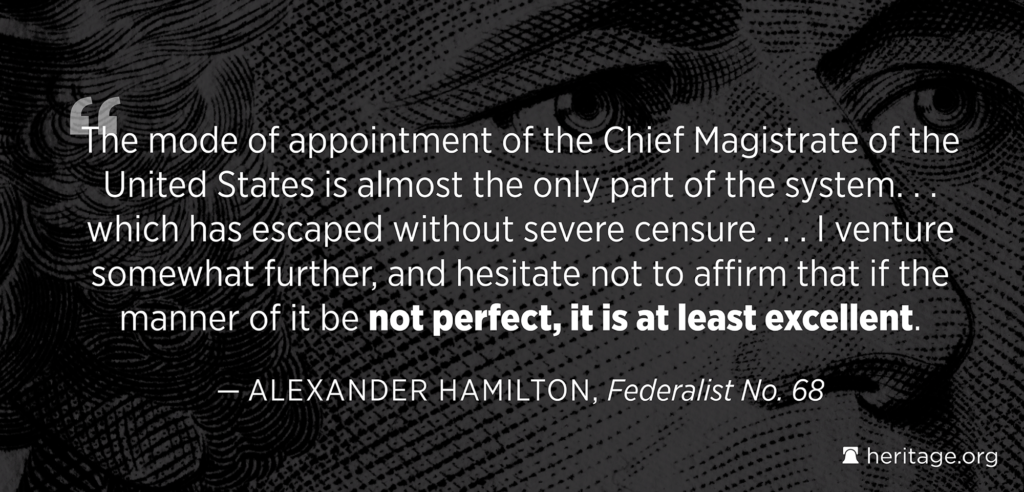
The Atlantic has published a frustratingly bad column by Bulwark editor Charlie Sykes titled “America’s Lowest Standard.” It begins well with the subhed “Try to imagine anyone like Trump surviving in any other segment of our society—business, entertainment, sports, the military.” Alas, it immediately goes off the rail in the body proper.
In one of his rare moments of naivete, Alexander Hamilton imagined that the Electoral College would afford “a moral certainty” that the office of the presidency would not “fall to the lot of any man, who is not in an eminent degree endowed with the requisite qualifications.”
He hoped that the electors would be a bulwark against men who had a talent “for low intrigue and the little arts of popularity.” “It will not be too strong to say,” Hamilton wrote in “Federalist No. 68,” “that there will be a constant probability of seeing [the presidency] filled by characters preeminent for ability and virtue.”
I think it’s not too strong to say that he was wrong.
As the E. Jean Carroll trial wraps up, I find myself reflecting on the fact that at least 26 women have accused Donald J. Trump of sexual assault or misconduct. Even in the era of #MeToo, the volume of charges is staggering. Carroll has accused Trump of rape. The other two dozen women have described various other forms of assault, abuse, and groping. (Trump has denied every allegation.)
here is, of course, a lot more evidence that suggests that Trump is not a character of preeminent virtue. The twice-impeached, defeated former president has been indicted on multiple felony charges and may face more. He is a chronic liar and fraudster. He also played a role in fomenting the January 6 insurrection. Trump has called for the suspension of the Constitution and dined with a white supremacist, and he traffics in racist invective and conspiracy theories.
And yet, Trump has already been elected to the presidency once and is now poised to seize his party’s nomination for a return to office. An NBC poll last month found that two-thirds of Republican voters stood behind Trump. Given the mathematics of the Electoral College in which Alexander Hamilton invested such high hopes, Trump has a good chance of winning the presidency again.
Hamilton and the other Framers got many things spectacularly wrong about how our politics would evolve. Most damningly, they constructed the our institutions oblivious to the impact political parties would inevitably have despite the fact that they had already developed in England. But we can hardly call Hamilton “naive” for not predicting that future generations would take a system precisely designed for elites to pick the President and wedge a popular vote into it. Aside from still carrying the name “Electoral College,” our current system bears essentially no resemblance to the one Hamilton was extolling. Indeed, he would have been aghast at the notion that the hoi polloi had any say at all in who should govern.
I get that Skyes was an English major but, for goodness sakes, he’s hosted a political talk show for decades and is editor-in-chief of a political website. Surely, we should expect at least a 7th grade civics level of understanding of the Constitution?
Had that part of the column been given the ignominious fate it deserved, ruthlessly cut by a decent editor, the result would have been much better. It continues:
To put this in context: Try to imagine anyone like this surviving in any other segment of our society—business, entertainment, sports, the military, even politics. Just ask Harvey Weinstein, or any of the other moguls, executives, and celebrities who no longer have careers.
No publicly traded company would consider naming Trump to an executive position, or even to a position on its board. None of his billionaire friends would trust him with their money. Even in our debased political culture, the cascade of rape allegations and indictments would force Trump’s resignation as a senator, governor, or legislator.
Trump would not be allowed to own an NFL, NBA, or MLB team, and no one would even think of giving him a management job at a local Burger King. It’s impossible to imagine him being given any position of authority at any school or university in the United States.
Alas, that’s a pitch, not a column. And it’s followed by more nonsense:
Hamilton thought that he had fireproofed the presidency from mountebanks and charlatans because we would seek out only the best and the brightest among us. Instead, we have apparently saved our lowest standards for the presidency.
Again, goddammit, we don’t select our presidents the way Hamilton wanted. The sort of people who constitute the elite—the propertied and educated—overwhelmingly voted for Clinton and Biden. Trump won by appealing to the base prejudices of the ignorant. (And, of course, simple inertia: most voters simply vote for their party regardless of the quality of its candidate, figuring out a way to rationalize why it’s the lesser of evils.)
Sykes then reinforces the part of his argument that’s actually good:
At this point, the Senate would be unlikely to confirm Trump’s appointment to any other position of trust. Someone with Trump’s character would not be granted a security clearance at any level of government. We wouldn’t let the man babysit our children or even walk the dog. We would definitely not buy a used car from the guy. But we might give him back the nuclear codes and control over the military, the FBI, the CIA, the IRS, and the Department of Justice. Americans might make him, once again, the face of America.
I’m, alas, not sure that’s quite true. The Republican-controlled Senate confirmed some pretty awful people to high posts on Trump’s nomination. By rights, Brett Kavanaugh should never have been confirmed to a lifetime appointment on the nation’s highest court and, yet, here we are.
Before Trump, the occasional scoundrel made his way to the Oval Office. But the presidency itself remained part of the national mythology. Children learned about George Washington’s honesty and Abraham Lincoln’s decency, because these were the stories we told ourselves and the ideals we celebrated.
This was the contrast that I had in mind the one and only time I spoke with Trump. In 2016, he had been insulting the looks of the wife of one of his rivals. “I expect that from a 12-year-old bully on the playground,” I told him. “Not somebody who wants the office held by Abraham Lincoln.”
Back then, I thought that most conservatives would agree. Former Education Secretary William Bennett, the author of The Book of Virtues and one of the most prominent virtucrats of the right, had repeatedly emphasized the importance of the president as a role model.
“The President is the symbol of who the people of the United States are,” Bennett wrote. “He is the person who stands for us in the eyes of the world and the eyes of our children.”
But like other Republicans, Bennett reversed himself in 2016, saying that conservatives who object to Trump “suffer from a terrible case of moral superiority and put their own vanity and taste above the interest of the country.”
In other words, the presidency was too important for voters to have moral or ethical standards for its occupant. We know the rest of the story, at least so far.
Well, no. Bennett may well be an ass but he made those comments in August 2016, when the alternatives were Donald Trump and Hillary Clinton, not some hypothetical “reasonable Republican.” While I ultimately held my nose and voted for Clinton, the first Democrat for whom I’d voted for President after eight straight elections in which I’d voted Republican, even though she was far and away my least favorite Democratic nominee over that span, I can certainly understand why a committed social conservative would think Trump’s election in the best interests of the country. If, for example, abortion was your top issue, then it may well have been the right call. There’s a reason the #NeverTrump movement was centered on national security professionals like myself.
After the release of the Access Hollywood tape, the GOP decided that character did not, after all, matter. Seven years later, neither the indictments for paying hush money to a porn star nor the accusations of assault—and rape—are disqualifying for Republican voters. In the 2024 contest for the presidency, they hardly even register.
Here, Sykes is right. Again, I can rationalize life-long Republians, especially religious conservatives, who voted for Trump over Clinton as the lesser of evils. By the time the Access Hollywood tapes were released, they were down to two choices.
But we’re not there any longer. While the closest thing Republicans have at this point to a decent candidate is Nicki Haley, that’s largely a function of it being crystal clear that the masses want either Trump or a more polished version of him, not a John McCain or MItt Romney—much less a George H.W. Bush.
Again, though, don’t blame Hamilton. If he had been consulted on nominating partisan candidates, he would have strongly advised against handing the choice to the masses, whom he considered nothing more than a mob. No, he would have left it to people like himself to choose. And I’m not sure he would have been wrong.

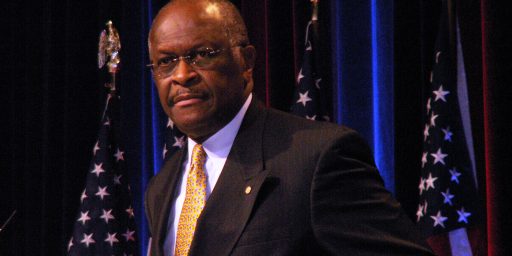

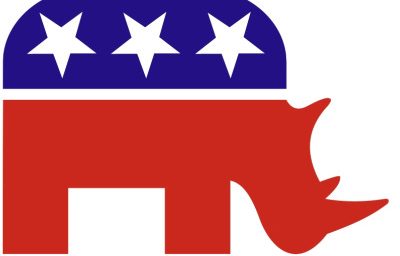
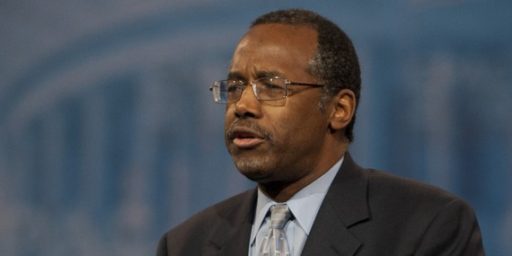
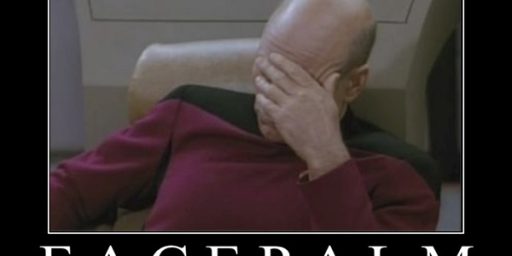
In his defense, I think an advanced understanding of the Consitution (which, sadly, is probably a 7th-grade level nowadays) is most likely a hindrance to being a successful political talk show host (in particular within the Conservative Media Complex).
Thank you. It’s seldom noted, as you did, that parties had already developed in England when the Founders failed to account for them. And yes, the Constitution is a profoundly conservative document intended to preserve the authority of property (including slaves) owning white men. Also, too, embedding compromises necessary for ratification but now counterproductive.
I think you’re being a bit unfair to Sykes. Or, at least, your critique appears to be somewhat misdirected. There are people who are far more deserving of being criticized for adhering to ridiculously outdated legal notions (e.g., that there is no right to substantive due process in the 14th Amendment, or that substantive due process doesn’t get you to a Constitutional right to privacy).
How many times aren’t we told that anything other than textualism/originalism is anathema when it comes to Constitutional interpretation? Because of that, aren’t we supposed to acquiesce to the Framers’ wisdom?
There’s no Constitutional amendment that says that the Electoral College isn’t still meant to keep the morally unfit away from the Presidency.
Personally, I think that textualism and originalism are hogwash.
But if not, what’s good for the goose, etc.
Both Biden and Clinton won the poorest voters, as well as the least privileged and most discriminated-against and historically disadvantaged demographics.
The most privileged people in American society — wealthy whites and in particular wealthy white men — overwhelmingly supported Donald Trump. And they would likely do so again against Biden in 2024.
@DK:
Yes, but also the stupidest and least educated also supported Trump.
@CSK: I’ve never been impressed with the intellect and critical thinking skills of the rich and well-connected. Look at Elon Musk’s tweets. Yikes.
@DK:
I’m thinking of the male and female troglodytes who show up for Trump’s rallies. There are masses of them. They’re also stupid enough to believe he loves them.
It is always worth remembering when discussing the deficiencies of our constitution that it wasn’t drafted by a group of enlightened men who had a far reaching vision of what the country would become. But an exercise in sausage making that included dozens, if not hundreds of bad compromises needed to move the process forward. Yes, this was a group of smart men, a few of whom could be described as visionary, but by and large they were near sighted politicians that were trying to solve a vexing problem of how to govern a geographically and socially diverse country (and particularly, how to pay back the debt from the revolution).
If Hamilton did not anticipate party politics, why not have the House, the imagined body of people closest to The People, select the POTUS?
Seems reasonable to posit the creation of a mirror body of wise men, created for one and only one decision, was a tacit acknowledgement there would inevitably be partisanship in the House and was thereby unfit to make the choice. If not that, what was it?
Here IMO was where Hamilton and Co were naive: A representative elected for one and only one task is asked one and only one question. Today we refuse to even allow these “wise men” to think at all. It is actually illegal for them to make their own decision on the matter, and the default is a semi-direct reflection of the populism the founders sought to ban from happening. It should come as no surprise a rank demagogue eventually won the office. If anything we should be surprised that it took so long to happen. The system they created did not work as intended from the git-go.
Look across the the Ocean and learn the True Way, colonial rebels!
🙂
@JohnSF:
Oh dear…
William Bennett was and is a stuffy high-minded fraud. He pretended that his preferred candidate(s) be virtuous role models but, as so many Republicans did, he sold out because acquiring power was more important to him than virtue.
Trump exposed a lot of people on the Right as very weak and extremely hypocritical..
@dazedandconfused:
Problem is IMO because a large number of the founders did NOT trust “democracy”.
See also indirectly elected senate, and the whole Bill of Rights business.
And of course the whole “separation of executive, legislature and judiciary” thing, which derive from Montesquieu’s (deliberate?) misunderstanding of British politics, and made mos Birits then and now go “Wut?”
See also the disputes among liberals in Britain and Europe in the 19th century about both franchise and entrenched limits on government power.
@Sleeping Dog:
😉
@JohnSF:
Mos Birits being the bog-monsters of the forsaken North, and NOT a stupid typo I can’t edit, ohnoofcoursenot.
🙁
@JohnSF:
The one thing everyone agreed on was “no kings”. All else was up for grabs and they had to borrow the template from an empire well past a thousand years dead just to find a starting point. Mistakes were going to be made.
I suspect the habit of partially fighting your wars over which batch of inbred creatures would hold power played a significant role. War of Spanish Succession, Queen Anne’s war, et al. I’ve heard the Brits were on the verge of abandoning that model too but Victoria managed to refurbished the image.
@dazedandconfused:
The inbreds thing is a bit of an exaggeration.
The Habsburgs were, because (massive simplification alert!) they ran short of Catholic monarchs. This gets reallycomplicated re. Bourbons, Braganzas, Medicis, etc and the problems of who you couldn’t marry due to wars.
But Protestant (and Orthodox, but lets not get started on that) had a far, far wider marriageable pool.
There were loads of North German princeling families that were eligible. Prince Albert von Saxe-Coburg Gotha for instance.
@dazedandconfused:
IIRC there was a lobby for “George Washington as King”, but Washington said nope.
@JohnSF:
There was.
A reminder that that EC never, ever worked the way Hamilton described in the in Federalist, so even making that appeal is a problem. In other words, it wasn’t even the introduction of the popular vote that transformed it. The basic functioning of the institution never worked as intended. I have written about this before, FWIW.
Also: parties in the UK are not quite what parties would become as an institutional feature, but I would note that even the Federalist/Anti-Federalist dichotomy demonstrated a nascent party system in the US. Still, the notion of a truly elected government and how a representative (even if flawed) system would affect party dynamics was just an unknown in 1787.
@dazedandconfused:The one thing everyone agreed on was “no kings”.
As noted, there was a make Washington the king contingent.
Moreover, even at the convention, Hamilton had a plan to create what would have been an appointed president for life, which was tantamount to a monarch.
I think both Sykes and commenters here are missing something important: Trump has skills, very good skills. He can present himself very favorably to a chosen audience.
I am not that audience. I once had ketchup on steak, but I graduated to horseradish and/or A1. So I am deeply suspect. He doesn’t care what I think of him, and he’s happy to bait me into disapproval. Not that he has any idea who I am, mind you.
If you are bothered by the fact that I appear to be praising him; if that seems disloyal? I think it’s important to have a very sober and grounded assessment of one’s enemies, rather than trash-talking everything they do.
I find Hamilton’s thesis – that the group of electors will not be so vulnerable to being swayed by a demagogue – to be more than a little suspect, by the way.
@Steven L. Taylor:
True, and I should’ve been more careful in my comment, but to me the elimination of dynastic family succession is a meaningful difference. No more royal families and a clear path to impeachment for an incompetent or self-serving monarch was a radical break from how it had been done for centuries. Hamilton was thinking about a very different kind of king.